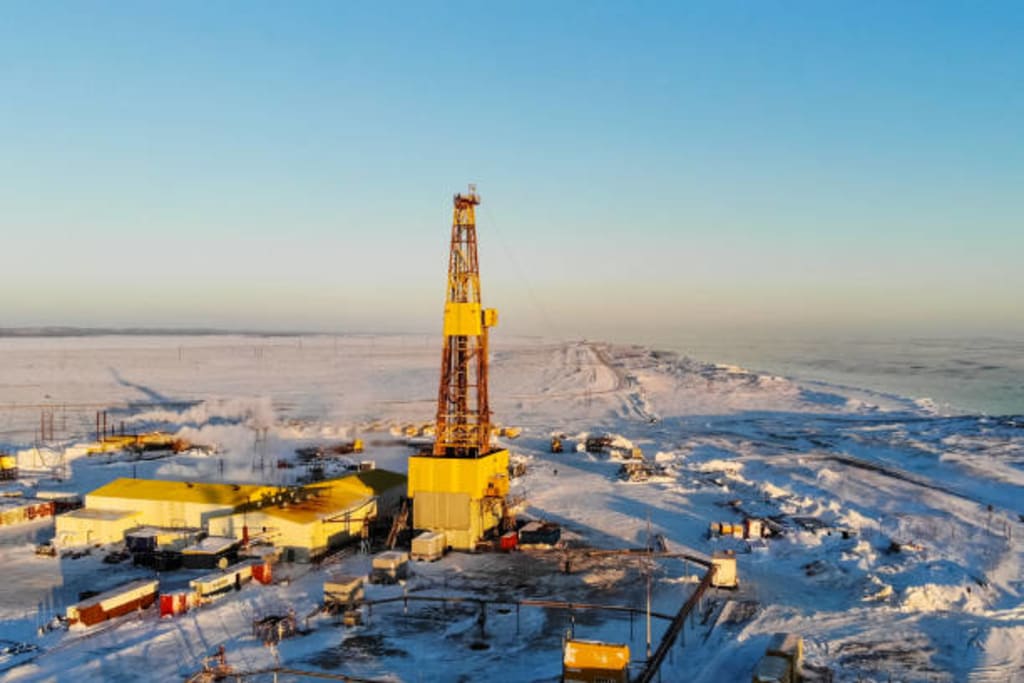Fueling Dependence: Germany's Reliance on Russian Gas
Swept in a Stream of Gazprom: Unraveling Germany's Energy Entanglement with Russia, and Its Implications for the Future

On April 8th, 2022, a significant event unfolded in the realm of international relations as the European Union (EU) took a decisive step by imposing its fifth round of sanctions against Russia. This marked a notable development in a complex web of diplomatic interactions. A notable quote emerged amidst this decision, capturing attention: "And, ladies and gentlemen, I think that measures on oil, and even gas, will also be needed sooner or later." This seemingly cryptic statement, "even gas will also be needed sooner or later," was carefully noted for its implications – suggesting a potential course of action in the future while hinting at the timing being not quite immediate.
This move was part of a series of actions taken by the EU in response to the ongoing conflict in Ukraine. Over the course of this period, sanctions had been artfully designed to restrict the flow of Russian money and goods. Various segments of the Russian economy felt the impact, with the EU targeting not just banks and companies, but also specific individuals who were instrumental in shaping the nation's policies. It was a chess game played out on the global stage.
However, a striking aspect of these sanctions was their restraint when it came to the realm of natural gas, a vital resource. The European Union relied on gas for almost a quarter of its energy needs, and nearly half of that gas came from Russia – a country renowned as the world's leading gas exporter. The intricate network of pipelines facilitating this exchange formed a vital link in the energy chain. Notably, Germany, boasting the EU's largest economy, stood as a primary recipient of Russian gas.
As the gears of diplomacy turned, Germany found itself in a unique position. Despite the geopolitical tensions and the economic sanctions being imposed, the country continued to forge an energy relationship with Russia. This was particularly evident in the staggering sum of approximately 220 million euros per day that Germany paid Russia for its gas supply, a sum that could support various facets of a nation's infrastructure.
Germany's reliance on Russian gas was borne from a historic trajectory that found its roots in the aftermath of World War II. In the mid-20th century, West Germany embarked on a remarkable journey of recovery and growth. Amidst this ascent, an insatiable demand for energy emerged, a need that was met by the vast natural gas reserves discovered in the heart of western Siberia, part of the erstwhile Soviet Union.
The late 1960s witnessed a pivotal shift in West Germany's foreign policy, characterized by a doctrine known as Ostpolitik. This doctrine emphasized dialogue and cooperation with the Eastern Bloc, a policy that paved the way for a monumental energy agreement between West Germany and the Soviet Union. In this historic pact, the Soviet Union promised to supply natural gas to West Germany, while West Germany reciprocated by providing high-quality steel pipes to extend the gas pipelines – a classic example of the proverbial "you scratch my back, I'll scratch yours."
It's important to comprehend the unique dynamics of piped natural gas – a regional commodity with transportation intricacies. Unlike its fossil fuel counterparts, coal and oil, which can traverse oceans, piped natural gas's movement is tied to the geography of pipelines. These pipelines are not ephemeral conduits; they are substantial, long-term investments that shape energy landscapes for decades. Hence, gas agreements became more than transactions; they were pathways that bound nations together.
The 1980s saw the Soviet Union establishing a comprehensive network of pipelines, solidifying its position as a significant gas supplier to Europe. By the 1990s, Germany was receiving 40% of its gas from Russia, a statistic that bore testimony to the effectiveness of the agreement. However, the geopolitical landscape underwent tectonic shifts with the collapse of the Soviet Union. Russia, emerging as the successor state, took over the extensive pipeline network, but the new configuration meant that gas routes ran through newly independent Ukraine.
To safeguard against potential disruptions in supply routes, Russia embarked on an ambitious endeavor – building alternative pipelines. By 1999, a pipeline running through Belarus was operational. In 2005, the Nord Stream pipeline, meandering along the Baltic Sea, was initiated, providing a direct route to Germany. These infrastructural marvels were supplemented by pipelines within German territory and the establishment of gas storage facilities, such as the impressive storage site that ranked among the largest in Western Europe.
The intricate gas network underscored Russia's energy influence over Europe, a fact that manifested vividly in the gas price negotiations of 2008. An impasse led to a gas cutoff to Ukraine, which inadvertently impacted the flow of gas to multiple European nations. This episode illuminated the extent to which gas flows could be wielded as a geopolitical tool.
The subsequent years brought forth another ambitious project – Nord Stream 2. An investment exceeding 11 billion dollars, this pipeline aimed to mirror the original Nord Stream, doubling the capacity of gas transport to Germany. As this project took shape, 2014 ushered in another seismic shift – Russia's annexation of Crimea and its intervention in Eastern Ukraine. In response, the EU responded with sanctions, leading certain countries to distance themselves from Russian gas. In contrast, Germany continued to bolster its gas imports, thereby emphasizing its energy reliance on Russia.
Fast-forward to the present, and the situation has gained a heightened sense of urgency. As Russia's actions in Ukraine stir global outrage, Germany finds itself in a conundrum. The clamor for a change in energy dependency has grown louder, yet the path forward is riddled with complexities. Piped gas, woven into the fabric of German infrastructure, presents a formidable challenge to replace. While renewables remain the ultimate goal, the transition to such alternatives demands substantial time and resources, with an estimated completion date far into the future.
In this intricate dance of geopolitics and energy, Germany stands at a crossroads. Public sentiment urges action against Russian gas, yet economic realities loom large. A potential boycott could ripple through the economy, with potential job losses numbering in the hundreds of thousands. Despite this, Germany has begun taking cautious steps. The once-proposed Nord Stream 2 pipeline has been abandoned, and measures to reduce dependence on Russian gas have yielded a modest 15% reduction. Germany has even taken control of a subsidiary of Russia's Gazprom, signaling a more assertive stance.
However, the complexities persist. Germany's intertwined energy relationship with Russia isn't one easily untangled. The nation finds itself ensnared in a web spun from decades of energy agreements, geopolitical considerations, and economic pragmatism. As the world watches, the story unfolds with implications that extend beyond energy – a tale of diplomacy, resilience, and the intricate balance between power and dependence.
Like what you read? Consider liking and subscribing for more! :)






Comments
There are no comments for this story
Be the first to respond and start the conversation.